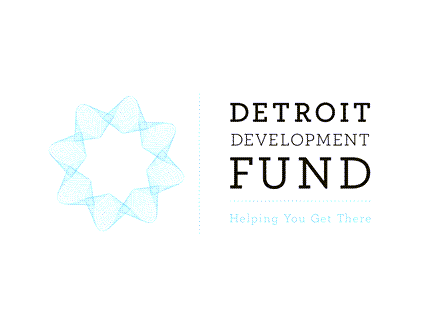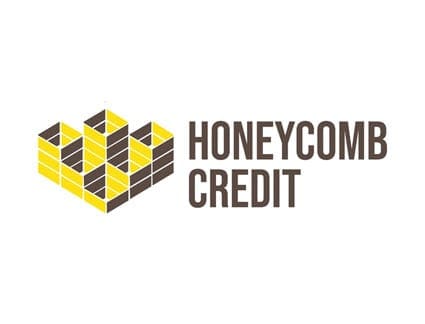What is a Revolving Loan Fund?
Revolving loan funds are pools of money used to makes loans for development and small business expansion. A loan from a loan fund can serve as a bridge between the amount the borrower can borrow from a private lender, such as a bank, and the amount needed to start or expand a business or development project. Loan funds are usually established using money from both public and private sources. As loans are repaid to the loan fund, new loans can be issued to other businesses. The DEGC administers several different loan funds, as described below. Each loan fund has certain application and performance requirements.
DEGC Loan Funds
Detroit Industrial Revolving Loan Fund (DIRLF)
For Detroit projects seeking funding for fixtures, furniture, equipment, or property acquisition
DIRLF is a citywide program for fixed-asset financing, which is administered by the DEGC. Applications are evaluated by the DEGC based upon the proposed borrower’s ability to repay and the potential impact of the proposed project on Detroit’s economy. DIRLF funds may be used for up to 40 percent of the costs of an eligible project, to a maximum of $200,000. The remaining 60 percent may be provided by a private lender, the borrower — or both. The borrower may be required to pledge certain assets not connected with the project and/or personal assets. The loan term(s) may vary, but in no event shall the term(s) exceed the useful life of the financed asset. The borrower shall also reimburse the DEGC for all out-of-pocket expenses, including but not limited to legal costs, recording fees and filing fees.
Success Stories
J&G Pallets
Loan
Jobs Created
Located on the eastside of Detroit, J&G Pallets received a $200,000 loan from the DEGC, which helped make its growth possible. With this loan, along with assistance from LISC and Invest Detroit, the company purchased materials to help rebuild the facility and new equipment. The result: J&G Pallets was able to accelerate its growth plan, cutting the timeline to completely renovate its facility by more than five years.
Since 1992, J&G Pallets has been providing pallets and pallet transportation solutions to local customers. Located five minutes from Eastern Market, Downtown Detroit and two major automotive plants, J&G Pallets is a resource for all manufacturers and warehouses in Metro-Detroit. With an emphasis on affordable rates, local hiring and family values, J&G has grown from a home-based business, to employing upwards of 20 members of the community, including returning citizens and individuals with cognitive disabilities. DEGC is proud to support businesses like J&G Pallets with a desire to grow and hire locally, and invest in city.
The Congregation Detroit
Loan
Jobs Created
DEGC RECOVERY ASSISTANCE LOAN FUND (RALF)
For small- to mid-sized Detroit businesses impacted by the COVID-19 pandemic
The DEGC Recovery Assistance Fund is a city-wide program for small to mid-sized Detroit businesses and is administered by the DEGC. The fund is intended to address the needs of Detroit businesses impacted by the COVID-19 pandemic. All potential borrowers must demonstrate the negative impact of COVID on their business. Eligible businesses may receive between $50,000 and $500,000 to be used for expenses such as payroll, rent payments and expenses to sustain and grow operations. A 10-percent equity infusion is required to receive a flexible, low- interest rate with terms of from 5 to 15 years. The borrower is required to reimburse the DEGC for all out-of-pocket expenses, including but not limited to, legal costs, recording fees and filing fees.
All the current funding for this loan program has been disbursed. Please stay tuned as DEGC staff will provide an update when additional funding is available.
Success Stories
First Line Tax Pros
Blessed Hands Interpreting Services
First Line Tax Pros
Downtown Development Authority (DDA) Loan Funds
SMALL BUSINESS LOAN TRANSACTION PROGRAM
For existing/future building owners, tenants, and business owners located within the Downtown Development Area No. 1
The Small Business Loan Transaction program was established by the City of Detroit’s Downtown Development Authority (DDA) to assist existing/future building owners, tenants, and business owners located within the Downtown Development Area No.1. This revolving loan program provides funds for the construction, redevelopment or improvement of real property to owners and tenants. In special cases, it provides working capital for new and existing businesses. Loans issued under the SBLT program supplement private investment and require an applicant to secure 50 percent of the cost of a project through private sources. SBLT loans are available up to a maximum of $200,000 per building, tenant or business and are typically offered at below market interest rates.
HOUSING/ OFFICE/ RETAIL DEVELOPMENT PROGRAM
For construction, redevelopment or improvement of real property located within the Downtown Development Area No. 1
The Housing/Office/Retail Development Program was established by the City of Detroit’s Downtown Development Authority (DDA) to stimulate additional residential and commercial activities in the Downtown District. This revolving loan program provides funds for the construction, redevelopment or improvement of real property located within the Downtown Development Area No. 1. To qualify for this program, an applicant must be either the property owner or — for certain cases — the tenant in a building located in the Downtown Development Area No. 1. Loans issued under this program supplement private investment and generally require at least a 2:1 ratio of private to public funds. The actual terms and conditions of the loan will be negotiated on a project-by-project basis.
Over the years, Hudson has hosted a number of charitable events to support health-related causes such as the American Heart Association, Karmanos Cancer Center, Mend on the Move, Sisters Network, Jackets for Jobs and others. The Spa has provided free health screenings and partnered with the Detroit Medical Center and Henry Ford Health Systems on various programs. In recognition for the many years of providing health and wellness services to Detroit-area residents, Woodhouse Day Spa has twice received the Spirit of Detroit Award, twice been voted Best Service business by Michigan Chronicle, and most recently was awarded the 2019 Retail RockStar Award by Michigan Business.Success Stories
Woodhouse Day Spa
Loan
Years in Business
Economic Development Corporation (EDC) Loan Funds
RESIDENTS/ REAL ESTATE
For real property rehabilitation projects to be owned, operated and financed by City of Detroit residents
The Residents/Real Estate loan fund was established by the EDC to foster greater investment in the real property rehabilitation projects by City of Detroit residents. All Resident/Real Estate loans are limited to real property rehabilitation projects to be owned, operated and financed by City of Detroit residents. City of Detroit resident ownership is defined as a minimum of 60-percent ownership belonging to a resident with a minimum of two years of residency within the City of Detroit. These loans are limited to a maximum of $750,000 or 40-percent of project costs, whichever is less. All loans are subject to standard credit underwriting as specifically detailed in the EDC’s Credit Policy Manual.
NATIONAL/ REGIONAL RETAIL/ RESTAURANT
For national or regionally recognized retail and restaurant ventures
The National/Regional/ Retail/Restaurant Loan Fund was established by the EDC to help foster investment in national or regionally recognized retail and restaurant ventures. Loans are limited to a maximum amount of $500,000 or 40-percent of project costs, whichever is less. All loans are subject to standard credit underwriting as specifically detailed in the EDC’s Credit Policy Manual.
NON-AFFILIATED RETAIL/ RESTAURANT
For fill-in ground floor retail/restaurant ventures
The Non-Affiliated Retail/Restaurant Program was established by the EDC to foster investment in fill-in ground floor retail/restaurant ventures. Loans are limited to a maximum of $200,000 or 40 percent of project costs, whichever is less. All loans are subject to standard credit underwriting as specifically detailed in the EDC’s Credit Policy Manual.
In order to qualify, borrowers must be able to prove ownership or demonstrated management responsibility for similar ventures. They must also have a valid license/operating agreement for the proposed venture, as well as demonstrated financial capacity to complete build-out and provide necessary operating capital for a minimum of one year.
Responsive DEGC Grants and Loans
In response to current events and economic conditions, the DEGC works with its partners, such as the Michigan Economic Development Corporation (MEDC) and the City of Detroit, to administer grants and forgivable loan programs. These responsive grants and loans grow small businesses and help those facing hardship. New opportunities are posted on our home page as they become available.
Success Stories
Livernois Commercial Corridor
in Zero-Interest Loans
Businesses
Small Business COVID Relief Funding
Michigan Small Business Relief Program launched March 2020 and awarded a total of $4 million to over 740 Detroit small businesses.
Michigan Small Business Restart Program ran from July to August 2020 and provided $7.25 million to more than 900 Detroit small businesses.
Michigan Small Business Survival Program awarded $4.06 million to 375 Detroit small businesses in February 2021.
More than 72 percent of grant dollars were awarded to minority-owned businesses, 53 percent to Black-owned businesses and 49 percent to women-owned businesses.
Funds from these programs assist with payroll, rent, mortgage payments, utilities and other similar expenses.






